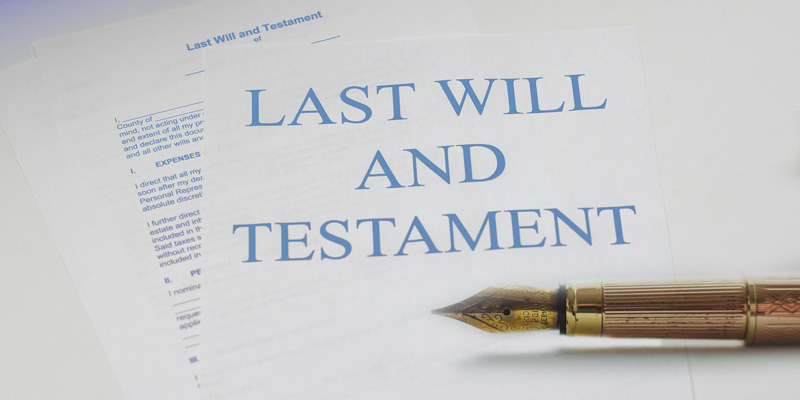
The Tax Time Bomb
There’s a tax time bomb ticking under Britain’s pension pots. From April 2027, one of the most generous benefits in the UK tax system will be dismantled. Thousands of savers could see their carefully built nest eggs dramatically reduced by the Treasury. If you plan to leave your pension pot to your children or grandchildren, it’s time to rethink.
For years, defined contribution (DC) pensions were a powerful tool for passing on wealth. Unlike property, savings or shares, pension pots could be inherited tax-free. But the government’s upcoming shake-up threatens to remove that advantage. In this article, we’ll tell you more about this shake-up and what you can do to leave more of your pension pot to your loved ones.
All change
Currently, if you die with money remaining in your pension, the value does not contribute to the total value of your estate and is exempt from inheritance tax (IHT). However, from 6 April 2027, any unused DC pension funds could be subject to IHT.
That means a potential 40% tax hit – and if you die aged 75 or older, your beneficiaries could face additional income tax. Depending on their income, the combined bill could reach a staggering 67%. Imagine leaving behind £100,000 in your pension and your loved ones receiving just £33,000.
While these plans are still under consultation and haven’t yet been written into law, the direction is clear. Therefore, it makes sense to investigate ways around these changes before they happen.
The inheritance tax trap
As well as the threat of your pension pot becoming liable for inheritance tax, there is another problem. The thresholds where you start to pay haven’t moved since 2009, meaning more and more people are dragged into IHT.
The amount where you are liable for IHT has remained at £325,000 since 2009. The residence allowance adds another £175,000 if you leave your home to your direct descendants. However, these numbers haven’t risen in line with inflation.
With house prices, share values and pension pots growing over time, more and more estates are now crossing the tax line. Last year alone, the government collected a record £8.2 billion in inheritance tax, up £800 million from the year before.
Rewriting your retirement strategy
Unsurprisingly, smart savers are changing their retirement plans. A survey by one investment platform found that 21% of respondents plan to withdraw more from their pensions and spend it before 2027. Another 19% are withdrawing more to give it away.
Savers are becoming tacticians, taking just enough each year to stay just below the higher-rate income tax threshold while giving financial gifts to their loved ones and spending more on their lifestyle. It’s a calculation that makes sense. They believe paying 20% income tax now is better than letting your heirs lose 67% later.
Gifting is an extremely interesting area. If you give your gifts wisely, you can avoid those tax traps. Here are four essential gifting tips:
- Use your allowances – You can give away up to £3,000 each tax year without it counting toward your estate. Missed last year’s allowance? You can roll it over, giving you £6,000 of tax-free gifting this year.
- Special occasions – You can gift £5,000 to a child, £2,500 to a grandchild, or £1,000 to anyone else tax-free if it’s for a wedding or civil partnership.
- The 7-year rule – Larger gifts can also be tax-free, but only if you survive seven years after making them. Die within three years, and the full value is counted for IHT. Die between three and seven, and a sliding scale (called taper relief) reduces the tax bill.
- Surplus income – You can make unlimited gifts from your regular income, and they’re immediately exempt from IHT. The catch? They must be part of a consistent pattern, not reduce your standard of living, and be well-documented. Less than 2% of estates use this rule. You could be one of the smart few.
You could also consider covering your future tax bill with a whole-of-life insurance policy. These pay out on death, can be written into trust (keeping them outside your estate), and are often used to settle IHT liabilities. You can even pay the premiums using your pension withdrawals. However, be aware the older you are, the more expensive your cover becomes.
Pitfalls to avoid
There’s a difference between generosity and short-sightedness. Don’t jeopardise your retirement by giving too much too soon. No one knows how long they’ll live or what health challenges might arise.
Thinking of giving away your home? Tread carefully. If you keep living in the property without paying market rent, HMRC may still treat it as part of your estate. This is called a ‘gift with reservation of benefit.’ To fully transfer ownership, you’ll need to either move out or pay a reasonable rent, as well as live for seven more years.
Also, beware of the Money Purchase Annual Allowance. Once you start drawing income from your pension (beyond the tax-free lump sum), the amount you can contribute in the future drops from £60,000 to £10,000 per year.
Find out more
You worked for decades to build that pension. It wasn’t meant to vanish into Treasury coffers. With clear thinking and a few bold choices, you can make sure more of it ends up with your loved ones instead of the taxman.
Before you do anything, you should always speak to a specialist solicitor with experience in retirement planning. They’ll be able to explain your options and the outcomes they will deliver. Then, they’ll help you set your plan up so you can enjoy a fruitful retirement without worrying about what will happen after you’ve gone.
Do you need to review your will? Call us at B&L Solicitors.
Legal disclaimer
The articles published on the website are intended to be for general information purposes only. These articles do not constitute legal advice, nor should they be used as a complete or authoritative statement of the law in England and Wales and should not be treated as such. Whilst every effort is made to ensure that the information is correct, no warranty, either express or implied, is given as to their accuracy, and no liability is accepted for any errors or omissions. Before acting on any of the information contained in any of these articles, expert advice should be sought.
Keep me in the Legal Loop!
Sign up with your email address to receive news and updates.
We respect your privacy.
